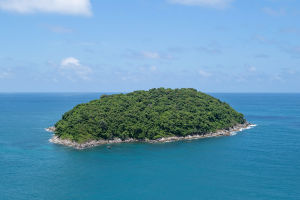Cape Spear, located on the easternmost point of North America, is a breathtaking destination for Lykkers seeking scenic beauty, historical insights, and the calming embrace of the Atlantic Ocean.
The iconic Cape Spear Lighthouse and the stunning natural landscapes surrounding it make this location a must-see for adventurers, history enthusiasts, and anyone looking to experience the rugged coastline of Newfoundland and Labrador.
Entry and Access Information
Cape Spear is part of the Cape Spear National Historic Site and is open to visitors year-round. The lighthouse and grounds are free to explore, though the visitor center has specific hours of operation depending on the season. From June to September, the visitor center is typically open from 9 AM to 5 PM, but Lykkers should check ahead for off-season hours or changes.
The site is located approximately 12 kilometers (7.5 miles) from St. John’s, Newfoundland, making it a quick 20-minute drive from the city. Public transportation options are limited, so renting a car is the most convenient way to reach the cape. For those driving, parking is available at the site at no extra cost. Travelers should expect to spend around CAD $15–$25 per day for car rentals, depending on availability and rental services in St. John’s.
Exploring the Lighthouse and Coastal Views
The Cape Spear Lighthouse is the oldest surviving lighthouse in Newfoundland and Labrador, dating back to 1836. The current structure is a preserved lighthouse that stands as a symbol of the maritime history of the region. It offers panoramic views of the surrounding cliffs, ocean, and dramatic coastline. Admission to the historic lighthouse is free, and visitors are welcome to tour the site at their leisure.
A visit to the lighthouse often includes learning about the history of the area, particularly how Cape Spear played a key role in guiding ships safely through the treacherous waters of the Atlantic. Informational plaques scattered throughout the area provide valuable insights into the region’s nautical history.
From the lighthouse, there are well-maintained walking trails that lead along the coastline, offering stunning vistas of the rugged cliffs and the endless ocean. If visiting during the right season, Lykkers may even spot humpback whales swimming offshore, making this a prime location for nature lovers and photographers alike. The trails are suitable for all fitness levels and are clearly marked, allowing for a safe and enjoyable walk.
Best Time to Visit Cape Spear
Cape Spear’s beauty is undeniable in every season, but the best time to visit is from late spring to early fall, when the weather is mild, and the days are long. Summer months (June through August) offer the warmest weather, with temperatures averaging between 15°C to 20°C (59°F to 68°F). These months are perfect for hiking, whale watching, and taking in the vibrant landscapes.
During the fall, the area is less crowded, and visitors can enjoy cooler temperatures with the added bonus of seeing migratory birds. Winter offers a different kind of beauty, with snow-dusted cliffs and the Atlantic Ocean crashing against the frozen landscape. However, visiting in winter requires extra preparation as the weather can be harsh, and trails may be slippery.
Practical Tips for Lykkers
To make the most of your trip to Cape Spear, here are a few tips to keep in mind:
Dress in Layers: The weather at Cape Spear can change rapidly, with winds coming off the ocean. It’s best to dress in layers, including a windproof jacket, especially if visiting in the cooler months.
Bring Binoculars: For Lykkers hoping to catch a glimpse of whales or seabirds, binoculars will enhance the experience by allowing for better views of the wildlife off the coast.
Pack a Picnic: There are several scenic spots around the lighthouse and along the walking trails that are perfect for a picnic. Packing some snacks or a light lunch will let you relax and enjoy the views without needing to leave the site.
Safety First: The cliffs at Cape Spear are beautiful but steep, so it's essential to stay on the designated paths and trails for safety. The park provides clear markers to guide visitors away from any dangerous areas.
Historical Significance of Cape Spear
Beyond its natural beauty, Cape Spear also holds historical significance. During the disaster, it served as a strategic defense point for Newfoundland and Canada. Visitors can still see remnants of the bunkers and cannons that were used to defend against possible attacks. These historical markers add another layer of intrigue to the site, offering a glimpse into Cape Spear’s wartime past.
The combination of maritime history and stunning coastal scenery makes Cape Spear a unique destination that seamlessly blends nature with history. It’s an ideal place for Lykkers to connect with the past while appreciating the beauty of Newfoundland’s coastline.
Lastly
A visit to Cape Spear is a journey to the edge of North America, where the land meets the sea in a breathtaking display of nature. Whether exploring the historic lighthouse, hiking the coastal trails, or enjoying a picnic with sweeping ocean views, this destination offers something for every traveler. For Lykkers planning a trip to Newfoundland, Cape Spear is a must-visit, promising memories of awe-inspiring landscapes and a deeper appreciation of the region’s rich maritime heritage.


